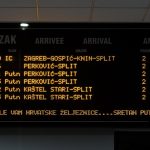This praiseworthy project was initiated by the Croatian Ministry of Demography, Family, Youth and Social Policy, with registration set for spring 2020.
As Lucija Spiljak/Poslovni Dnevnik writes on the 30th of October, 2019, depopulation and migration are a global demographic challenge to which an effective long-term incentive solution needs to be found that will make young people want to stay up, and at the same time improve family standards and raise the overall quality of life.
The Croatian Ministry of Demography, Family, Youth and Social Policy is actively working on the issue of demography, and their latest virtual Kid’s Cards project will provide families and children with benefits and discounts on various types of goods and services.
This is the first such pro-natal measure on the national level in the European Union, which, which, regardless of the number of children and without any emphasis placed on income or membership fees, provides financial savings for families. Most EU member states offer some sort of family card to parents with three or more children, more specifically the Family 3+ Cards, which are also available here in Croatia with the payment of a pre-determined membership fee.
It’s worth recalling that according to the latest census in Croatia, 112,830 families have three or more children in them, 319,658 families have two children, while 435,192 families have only one child, and discounts with the Kid’s Card would be valid for everyone, and their benefits would hopefully increase with the number of children.
Since this is not a classic card, and the aforementioned ministry wants to contribute to the slow but steady digitalisation of Croatian society and provide additional online services to residents through this project, the virtual card will be available through an application (app), which will be registered with the registry of e-services on May the 1st, 2020.
APIS IT is responsible for the development and establishment of the Infrastructure for the Kid’s Card information system, and Croatia’s e-citizens infrastructure will be upgraded based on the contract. A request will be received using a Level 3 National Identification and Authentication System, and access to that means that only a token is required.
The ministry will complete the visual identity of the Kid’s Cards by the end of the year, but full and high-quality implementation of the project requires the involvement of public and private sector partners, which includes national parks, sports clubs, cultural institutions, retail chains and other economic operators of various activities.
The ministry’s main aim is to promote socially responsible business with the Kid’s Card as a symbol of the social consensus of public and private partners in order to create a favourable and stimulating environment for families and young people within Croatia.
Make sure to follow our dedicated lifestyle page for much more.








